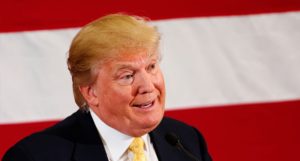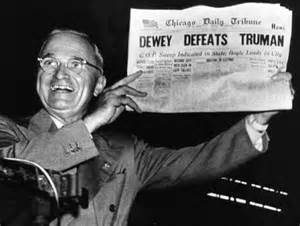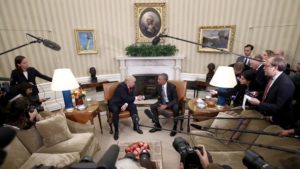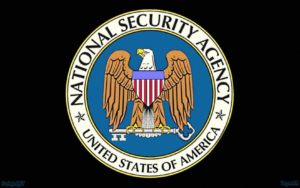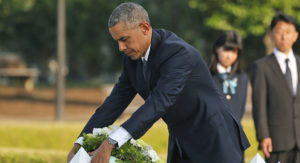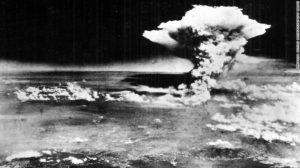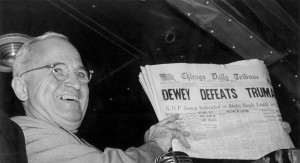A critic of High Plains Blogger scolded me recently about how I reference the commander in chief, Donald J. Trump.
The critic wants me to use the term “President” in front of his last name. I told him I would consider it.
I’ve thought about it for a bit of time and have decided … that I cannot make that leap. I just cannot — at least not yet — connect the words “President” and “Trump” consecutively.
It’s not that I disrespect the office. Indeed, I have great respect for the presidency. I’ve harbored that respect going back to the early 1950s, when I became aware of the office and the man who occupied it.
I was born in December 1949, when Harry Truman was president of the United States. He left office in January 1953, when I was just barely 3 years of age. The first president I remember was Dwight D. Eisenhower. To borrow a phrase, I liked Ike.
My first vote for president came in 1972. I voted for George McGovern, who got trampled by President Nixon. I’ve voted for plenty of losing candidates and my share of winning ones ever since. I’ve always managed to refer to the men I voted against by their title. Why? Because they were dignified, they knew how to act and speak like the leader of the free world, the commander in chief, the head of state of the greatest nation on Earth.
The man who occupies the office now hasn’t yet learned how to do that. He keeps saying patently goofy things. He keeps behaving strangely.
Am I still angry at the outcome of the 2016 election? Sure I am. That’s patently obvious to readers of this blog; it damn sure is obvious to the critic who scolded me. I won’t apologize for harboring the anger that a profoundly unfit man got elected to the highest office in the land. Nor will I apologize for declining to refer to him by the title he earned through his election.
Donald Trump has to earn it. To date, he has fallen short. His penchant for prevarication is an outrage. His ignorance of government and the mechanics of how to govern is annoying in the extreme.
And I also am waiting for a full-throated apology for the “fake news” lie he kept alive by asserting that Barack Hussein Obama was constitutionally unqualified to serve as president of the United States. Trump kept alive the lie that Obama was born in Africa and therefore was not a “natural born citizen” of the nation he governed successfully for two terms. Donald Trump was the disgraceful godfather of the “birther” movement.
I hope the man grows into the office. I want him to succeed. Honestly, I do.
Until he does and until he demonstrates some level of the decorum the office deserves, I will refuse — with all due respect — my critic’s demand that I change the way to which I refer to the president.
